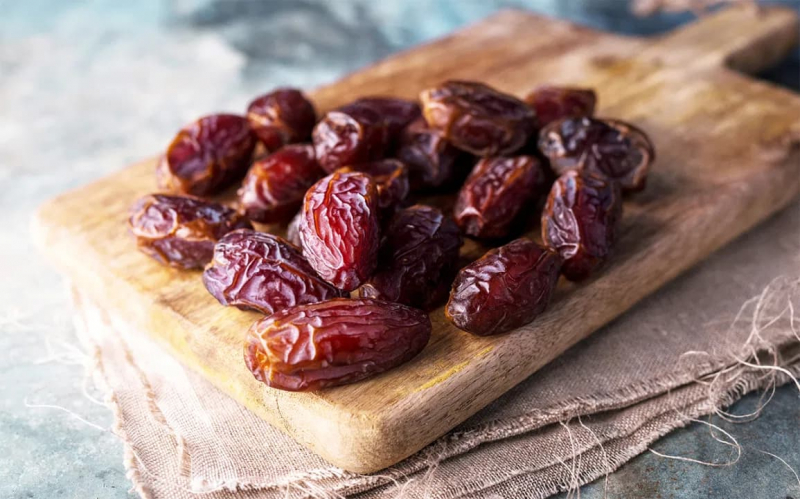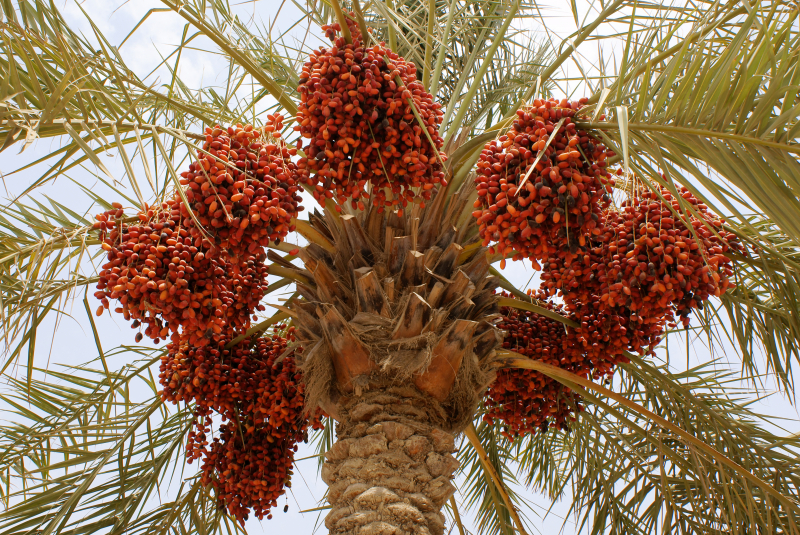Dates
Phoenix dactylifera, commonly known as date or date palm, is a flowering plant species in the palm family, Arecaceae, cultivated for its edible sweet fruit called dates. The species is widely grown in South Asia, the Middle East, and northern Africa. It has also become naturalized in many tropical and subtropical areas around the world. The type species of the genus Phoenix, which includes 12–19 species of wild date palms, is P. dactylifera.
Date trees can grow alone or in clumps with multiple stems from a single root system, reaching heights of up to 30 meters (100 feet). They grow slowly and, with proper care, can live for more than a century. Date fruits (dates) are oval-cylindrical, 3 to 7 centimeters long, and about 2.5 centimeters in diameter. Depending on the cultivar, their color can range from dark brown to bright red or yellow. Dates are exceedingly sweet and are eaten as desserts on their own or in confections. When dried, dates contain 61–68 percent sugar by mass.












